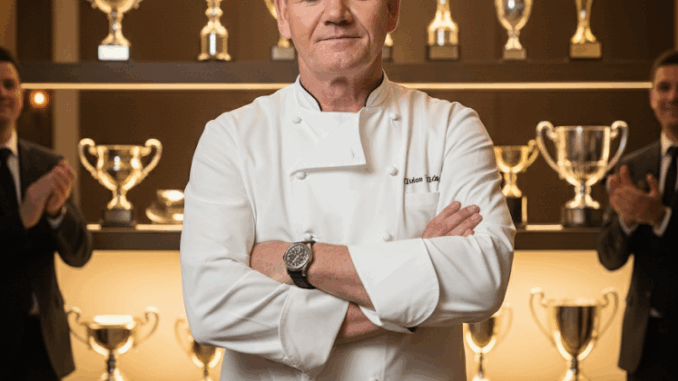
Gordon Ramsay is not just a chef, not just a TV personality, and not just a global brand — he’s a force of nature who single-handedly rewrote the rulebook on what food television could be. Long before “foodie culture” exploded on Instagram, before celebrity chefs became household names, and before kitchen drama could dominate primetime ratings, Ramsay was already there, shouting, sweating, swearing, and transforming the way audiences consumed food on screen. Now, years later, a wave of famous chefs are openly admitting what fans have always known: Gordon Ramsay didn’t just cook for the cameras, he changed the entire medium.
Across interviews, podcasts, and features, the theme keeps repeating. From Michelin-starred titans to new-wave culinary influencers, the acknowledgment is nearly unanimous: without Ramsay, the television food landscape would look entirely different. Chefs who once dismissed television as mere fluff now credit him with elevating it to an art form — part drama, part education, part adrenaline-fueled spectacle.

One acclaimed European chef recently put it bluntly: “Before Gordon, food TV was safe, polite, and predictable. He made it dangerous. He made it real.” That sense of rawness — of cooking as survival, competition, and storytelling — became the template for countless shows that followed, from MasterChef to Top Chef to the endless parade of cooking competitions that dominate streaming today.
What sets Ramsay apart is that he fused two worlds that rarely coexisted: the intensity of the professional kitchen and the accessibility of mainstream television. Audiences didn’t just see recipes; they saw conflict, passion, and ambition under pressure. Every curse word, every slammed plate, every perfectly plated dish became part of a narrative that hooked millions. And other chefs — even those who once criticized his firebrand persona — now admit they borrowed liberally from his playbook.
The ripple effect of his influence can be traced through careers, too. Young chefs who grew up watching Hell’s Kitchen or Kitchen Nightmares often credit Ramsay as their first exposure to the “real” side of professional cooking. Today, many of those same chefs helm their own restaurants or appear on their own shows, openly acknowledging the blueprint Ramsay created.
Even culinary legends who predated him now tip their hats. A well-known American TV chef recently confessed: “I used to think Gordon was just shouting for ratings. Then I realized he made people care about chefs in a way we’d never achieved. He gave us personalities, not just plates.” That shift — from focusing solely on food to focusing on the human drama behind the food — is the DNA of modern food television.
And the influence doesn’t stop at TV. Ramsay’s on-screen persona directly fueled his global restaurant empire, reinforcing his image as both genius and gladiator. The result? A brand so powerful that when people think of food TV, they think of Gordon Ramsay first. His impact is such that even rivals who once rolled their eyes now openly admit: the industry owes him.
So when today’s celebrity chefs gather to talk about their craft, one name inevitably comes up — Gordon Ramsay, the man who redefined food television for a generation and left an indelible mark on every show that followed. Love him or loathe him, the “Ramsay Effect” is undeniable